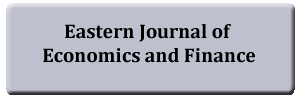Effect of Demographic Factors on Entrepreneurial Culture: A Study of University Students in Metropolitan Kano
DOI:
https://doi.org/10.20448/journal.801/2016.1.1/801.1.10.34Keywords:
Demographic factors, Entrepreneurial culture, University students, Metropolitan Kano.Abstract
Evidences from the literature have revealed that the cultural value that predominates among individuals in a society exercises an influence on their attitude, intention and behavior including those that are channeled towards entrepreneurial activities. Thus, an in-depth knowledge of the differing cultural orientation among these individuals based on their demographical or other personal characteristics can serve as a basis of understanding their entrepreneurial behavior in addition to providing a means of promoting an entrepreneurial driven cultural value. This study examined the influence of demographic characteristics: gender, marital status, age group on the tendency of university study to exhibit entrepreneurship cultural values. Three cultural predictors: perceived appropriateness, perceived consistence and perceived effectiveness were highlighted as important entrepreneurial cultural values which can be used to predict an entrepreneurial inclined intention/behavior. Furthermore, the results from the 255 copies of close ended and structured questionnaires that were considered usable for statistical analysis indicates that while no significant difference was uncovered in the constructs of appropriateness, consistence and effectiveness according to the gender group of the respondents, a statistically significant difference was however uncovered among them according to their marital status in that those students who are single have the tendency to exhibit a higher perception of entrepreneurial appropriateness. In addition, it was uncovered that those students who are between the age range of 26 and 36 are significantly higher in these three cultural predictors as compared to their younger counterparts who are within the ranges of 15-25 years, 37-47 years old, and 48 years old and above. On the basis of these findings, it was recommended that while disseminating information to foster entrepreneurial cultural change, efforts should be made to employ a segmentation strategy which will allow more concentration on the individuals who were highlighted as having less perception of entrepreneurial cultural values.




